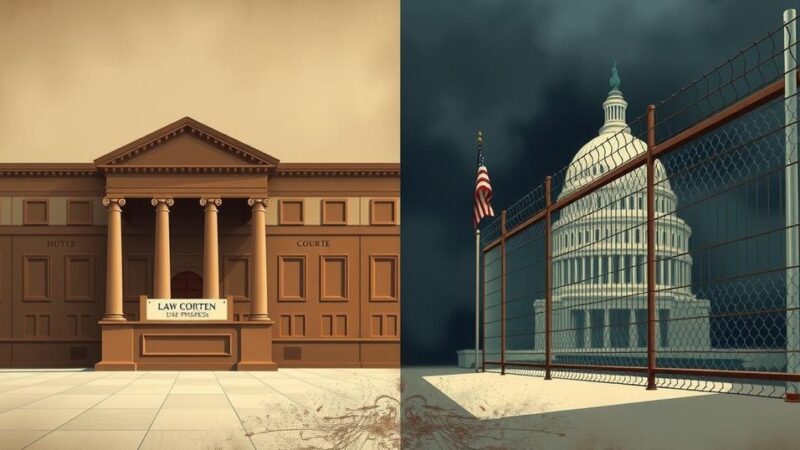The Catholic Church in Benin marks the 35th anniversary of the National Conference, raising concerns about the current democracy and the church’s political influence. Many attendees expressed disappointment with the state of democracy and the diminishing respect for the church’s voice in political matters. The gathering highlighted the historical significance of the conference while calling for renewed commitment to democratic values.
The Catholic Church in Benin recently commemorated the 35th anniversary of the National Conference, reflecting on the nation’s democratic evolution. Despite efforts to memorialize the contributions of the late Archbishop Isidore de Souza, many expressed dissatisfaction with the current state of democracy and questioned the church’s present political influence. The conference, pivotal in transitioning Benin from dictatorship to a multiparty democracy, remains etched in the nation’s history.
In honor of the anniversary, the Benin episcopate established February 28 as a day for remembering national leaders and their contributions. Bishop Roger Houngbédji emphasized its importance, stating, “The main goal is to ensure that we constantly honor the memory of the National Conference.” The church celebrated this day with a solemn Mass and a colloquium focused on reinforcing democratic principles in Benin.
Participants in the colloquium reflected on the democratic advancements since 1990 with mixed feelings. Alain Adihou, who represented Catholic youth during the conference, highlighted that while the national political elite was expected to uphold democratic gains, they largely failed to do so. He lamented the resurgence of prevalent issues of governance which was meant to be eradicated.
Veteran lawyer Robert Dossou, a significant figure in the conference, echoed similar sentiments, noting the decline of democracy in recent years. He described the current political landscape as a multi-polar one-party system, where dissenting voices are marginalized. Critics of the government point to increased repression and lack of transparency in elections as significant concerns regarding democratic integrity.
Moreover, the effectiveness of the church’s political voice appears diminished today compared to the past reverence held during the conference. Jacques Tossavi, a Catholic from Abomey-Calavi, remarked, “Today, it feels like government leaders no longer listen to them,” indicating a concerning shift in relationship dynamics between the church and the state.
Adihou further attributed the church’s diminishing influence to the qualities of past leadership, particularly General Mathieu Kérékou, who was known for his humility and respect for the clergy. The national synthesis for the Synod on Synodality references growing concerns about the church’s declining participation and influence in political discourse, reinforcing the need for revitalization of its engagement in societal issues.
In conclusion, the Catholic Church in Benin has played a crucial role in the country’s democratic development, yet its current political influence is under scrutiny. The anniversary of the National Conference reveals mixed sentiments regarding democratic progress and dissatisfaction with government responsiveness to ecclesiastical guidance. Moving forward, reevaluating and enhancing the church’s political engagement may be essential for fostering democracy and addressing social injustices effectively.
Original Source: international.la-croix.com






